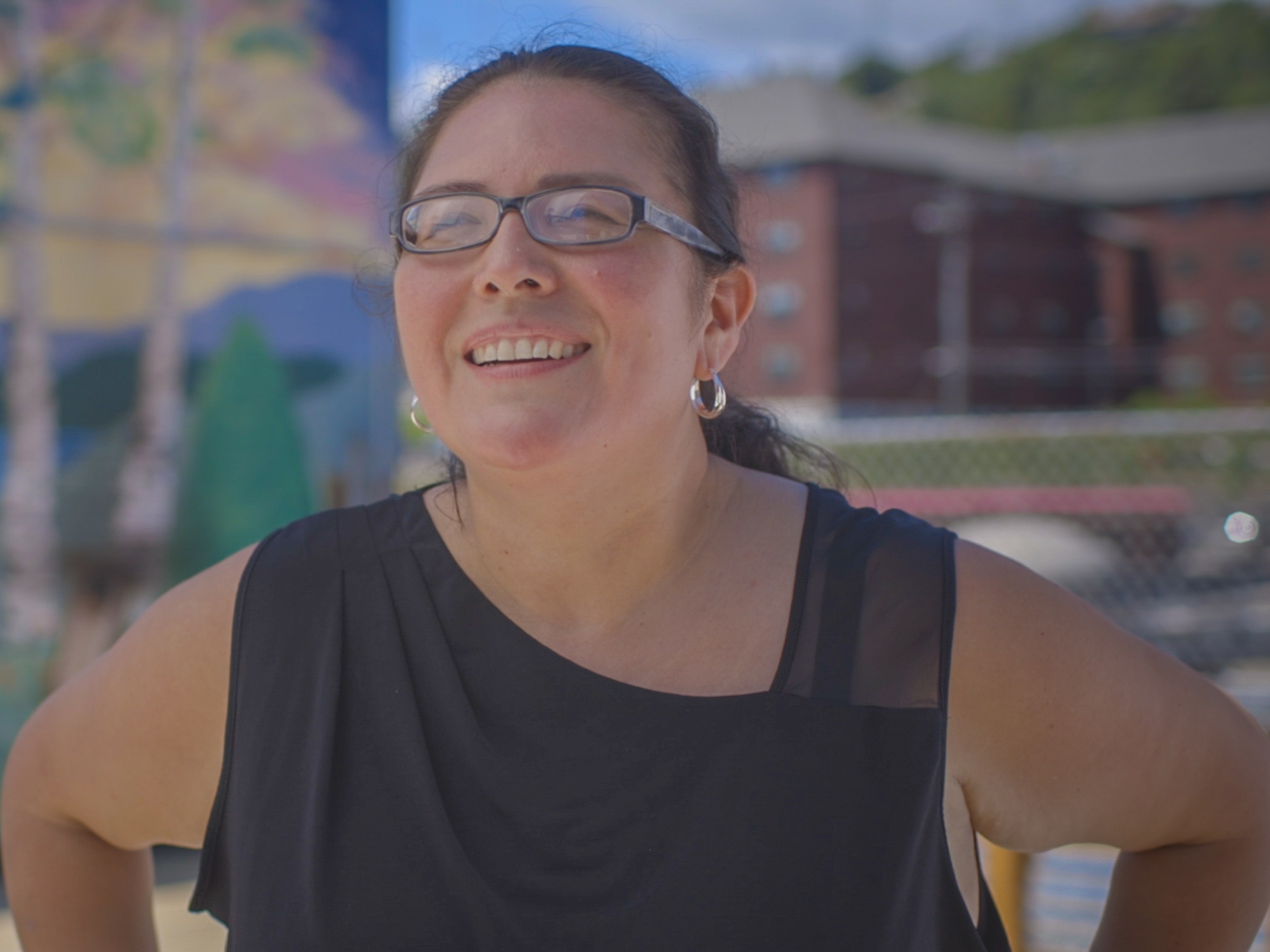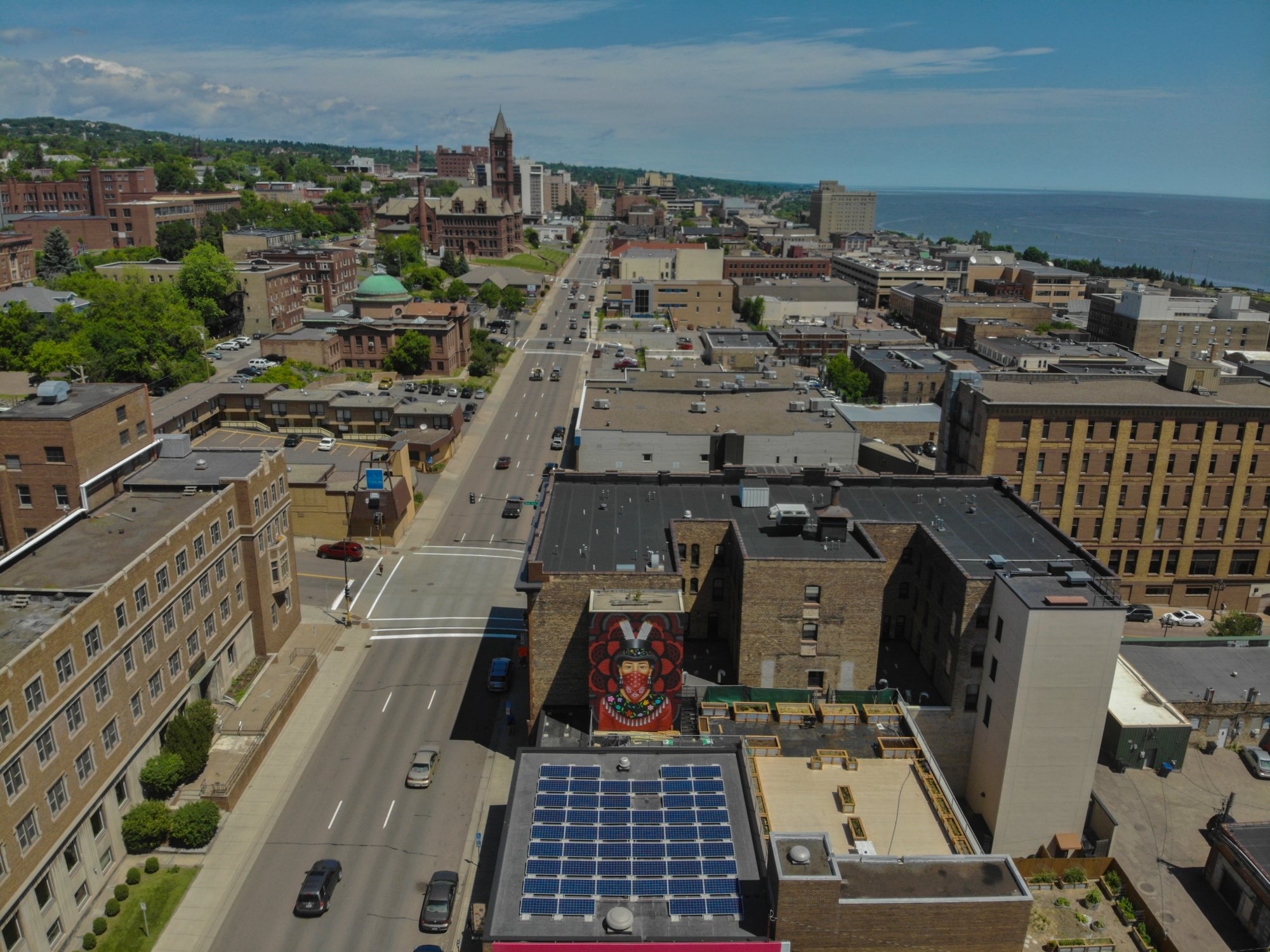
Duluth
A Natural Fit
Thinking in Terms of Seven Generations
On the roof of the Dr. Robert Powless Cultural Center at the American Indian Community Housing Organization (AICHO) in Duluth, a mural of an Ojibwe woman stands tall over a row of solar panels.
“There’s this idea in Anishinaabe culture of always thinking in terms of seven generations ahead and taking care of them, even though you may not meet them,” says Moira Villiard, AICHO’s arts and cultural programs coordinator.
$15,000
In Savings.
The solar array will save AICHO $15,000 each year – money that will support programs for low-income and homeless Native American people in Duluth.
30
Years.
The solar array is projected to last for 30 years.
“This area has a lot of spiritual significance to our people.”
AICHO grew out of a collective vision of Native American women in the Duluth community, who believed that every American Indian woman and child deserves to live in a safe, non-threatening environment and should be treated with dignity and respect. AICHO is now the only provider of culturally specific housing and services in Northeast Minnesota.
Recently, AICHO started building out programs focused on how cultural resilience strengthens the health of our natural environments. The organization wanted to use the rooftop of the cultural center for sustainability practices – a rooftop garden, solar panels, a rainwater collection system, a rooftop kitchen and more.
When Ecolibrium3, a Duluth nonprofit, received a Solar Market Pathways grant from the U.S. Department of Energy, they reached out to AICHO.
“It seemed like a very natural fit to approach AICHO and see if there was some point of connection between the resiliency work that they were doing and the energy work we were doing.”
Shannon Laing, the director of partnership development at Ecolibrium3.


Although Ecolibrium3 received the initial grant, the Duluth community brought the project to life. The Ordean Foundation, Lloyd K. Johnson Foundation and Minnesota Power contributed foundational funding, while Minnesota Interfaith Power & Light and the Whole Foods Co-op chipped in funding for the roof, the mural and the solar array. The Rural Renewable Energy Alliance installed the solar panels.
The 16-kilowatt system is projected to generate enough energy to save about $15,000 each year for a service life of 30 years. The funding saved will support programs for low-income and homeless Native American people in Duluth.
“Duluth is indigenous land” says LeAnn Littlewolf, the development director at AICHO. “This is our traditional homeland. This area has a lot of spiritual significance to our people. And I think the whole emphasis on our traditional values; it’s a natural fit to talk about sustainable energy.”
